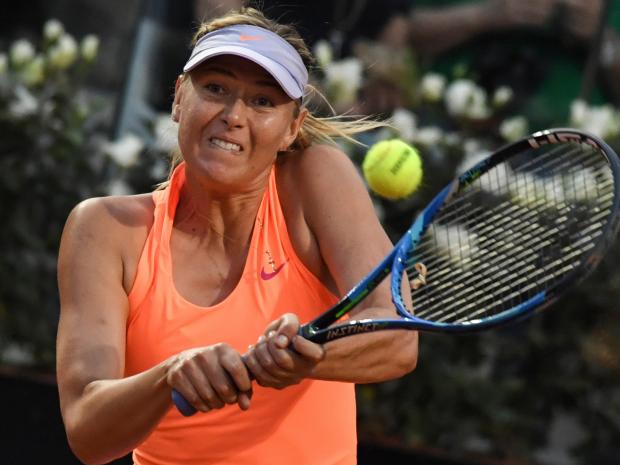
LONDON — Tennis star Maria Sharapova, who was banned from the sport for 15 months for doping, has hit back at her critics, saying they “don’t have the facts”.
The former world number one was suspended last year after she admitted taking the banned substance meldonium.
She has been widely criticised. Fellow player Eugenie Bouchard said she should not have been allowed to return.
But in a BBC interview, Sharapova denied cheating and said she had put the scandal behind her.
In April, Bouchard had said: “She’s a cheater and I don’t think a cheater in any sport should be allowed to play again.”
But Sharapova on Wednesday told the BBC: “I think those are comments not based on facts, and therefore I don’t take them into consideration.”
The Russian player, who has just released her memoir Unstoppable, My Life So Far, also took aim at Andy Murray. The British player has previously said he finds it strange that there is a prescription drug – meldonium — used to treat a heart condition commonly shared by many athletes at the top of their sport.
Sharapova said: “I don’t think it’s for them to really have an opinion, because they don’t have the facts. So, you know, I think that those are the types of words that make headlines and they will be used as headlines.
- Chamisa under fire over US$120K donation
- Mavhunga puts DeMbare into Chibuku quarterfinals
- Pension funds bet on Cabora Bassa oilfields
- Councils defy govt fire tender directive
Keep Reading
“But ultimately, this is my career, and I faced it head on, and I admitted my mistake, and I went about it and I served my suspension and now I’m back.”
She admitted making “a big mistake” by taking the drug, which she says she has been taking since 2006 for health issues. It became a banned substance on 1 January 2016. However, she questioned whether it should be banned, saying there is “no proof” of its performance-enhancing effects.
“The problem I have with that is there’s no proof of what it does, and no one can give you that proof. What is the ban based on?” she said.
It’s thought the drug could have a positive effect on an athlete’s stamina and endurance. — BBC







